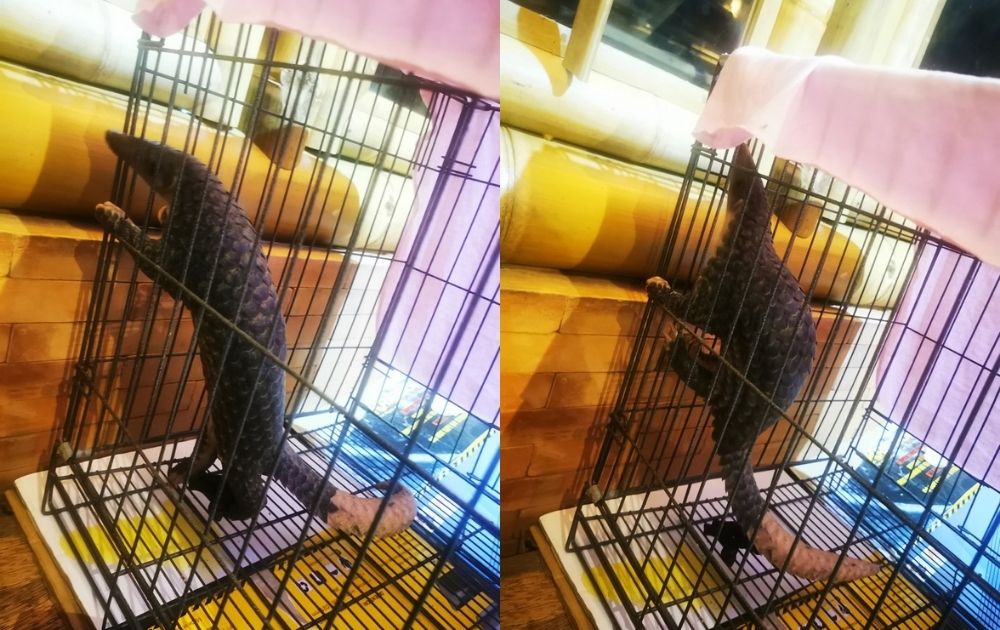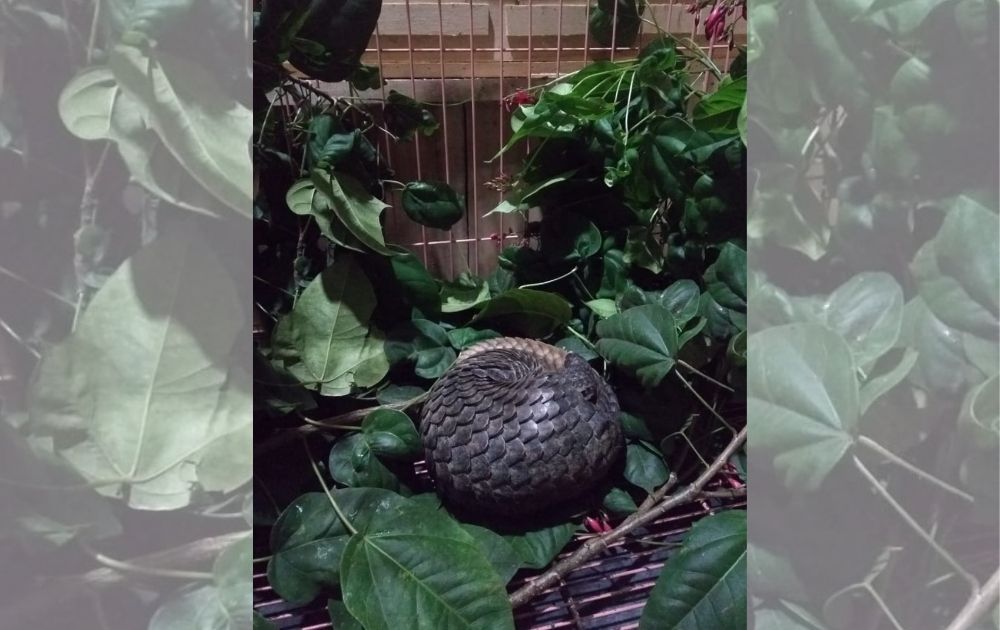One evening in September, a delightful little surprise came knocking at my door — it was my neighbor Nyoman, with a pangolin in his hands.
It was surreal, to say the least, as I’d never expected to see the magical creature in real life. Not that there was much to see at first, with the mammal all balled up as I greeted it. Slowly but surely, however, the curious animal unraveled itself and started to have a look around.
We live in Gianyar, and Nyoman told us that he found the animal stuck in a canal earlier that evening before he rescued it out of the precarious situation. Neither Nyoman nor his large family knew what the animal was, and brought it to our doorstep assuming that I would know what to do.
Yet the extent of my knowledge about pangolins told me to stay back, observe, and allow the animal to carry on its way. I was also aware that any pangolin-related trade is illegal here in Indonesia, and therefore we should carefully decide our course of action.
As it turns out, our little guest is even more special than we’d thought; we learned that it was a Sunda pangolin, which is listed as a threatened species by the International Union for Conservation of Nature (IUCN). Not to mention that the species is usually found across Sumatra, Kalimantan, and Java, thus making the encounter in Bali even more magical for us.
We soon named it Pavlov. In the short time it stayed with us, I sat by and observed the curiosity and strength of the animal before me. Often it would start in a curled-up, defensive position, but quickly got comfortable and began exploring the environment. It would pull itself up onto the cage bars and started climbing around, almost similar in innocence to the way children dangle on monkey bars in the playground.
At one point, Pavlov used its tail to hang from the bars of the cage and looked around, poking its snout through the cage to sniff our very curious dogs, who were intrigued by the odd smell in the room. I was astounded by how comfortable and friendly this wild animal became in just a short period of time, which also taught me that Pavlov’s timid and friendly nature makes his species an easy target for poachers.

We quickly looked for the right person to trust to help us, which we felt was crucial considering that pangolins are one of the most trafficked animals in the world.
I reached out to a resident snake man, Ron Lilley, to see if he could connect us to someone who could take Pavlov to a safe place and give it a good health check. Ron has previously helped us with several snake encounters, so I was hoping he’d have a trusted contact. Sure enough, he connected us with Bali Wildlife Rescue Center, who came and collected the pangolin almost immediately.
The pangolin received a thorough health check from Bali Wildlife, who then released it back into the wild. They filmed a bit of the bittersweet moment and posted the video on their Instagram page, which you can see below:
View this post on Instagram
The entire experience, moments of which took my breath away, made me realize that there’s plenty to share about these mammals, and prompted me to share my story in the first place.
A flawed defense mechanism
Pangolins, also known as scaly anteaters, are the world’s only scaly mammals, and they play a critical role in their ecosystems. According to the Natural History Museum in London, they consume up to 70 million insects per year, thus providing natural pest control that is estimated to save millions of dollars per year.
In the wildlife trade, pangolin scales reportedly sold for up to US$750 per kilogram in 2013 in China, and they are being poached to extinction for both their meat and scales across Asia and Africa. The illegal pangolin trade has reportedly been driven by their use in traditional Chinese medicine and in Africa, even though there’s no evidence they are effective, as reported by National Geographic. In Indonesia, pangolin scales are used as a substance binding agent in the production of crystal methamphetamine psychotropic drugs, locally known as shabu. Pangolin skin is also used for its leather, while their meat is considered a delicacy.

When they are threatened, pangolins would roll into a ball (like armadillos do, and what Pavlov certainly did), to hide their vulnerable belly and other parts their tough scales don’t cover. Sadly, this same defense mechanism is what makes it easy for humans to grab them. Pangolins are strong, smart, but timid. However, the world has imposed upon them a great danger that threatens their very existence.
We have a duty to do what we can to preserve this beautiful and extraordinary animal, as the hunting of this animal is not even remotely sustainable and humans are wiping this planet of too many incredible creatures. Pangolins are extremely susceptible to becoming extinct, as they are very slow breeders and keeping them in captivity does not help this matter as they are easily stressed and tend to die in those circumstances. According to the Wildlife Conservation Society, female captive pangolins are likely to only produce one young in her lifetime, and the mortality rate of a pangolin in captivity is very high, wherein 1 in 5 captive conceived pangolins die each year.
If, like me, you’re lucky enough to encounter a pangolin, here’s my tip: leave it alone, observe it, and allow it to continue as normal. If it seems like it’s in trouble, call a center you trust to give the animal the help it needs.
You can find and contact Bali Wildlife Rescue Centre on Instagram and speak to them if you have any questions. You can also head to this page to donate to the organization and help them to keep doing the amazing work they do.
Farewell, Pavlov.
Lisa Thompson has been living in Bali with her husband and two rescue dogs for almost two years. They run a PT PMA and investigate the sustainability of bamboo as a material that can be highly beneficial to the future of the planet.



Reader Interactions